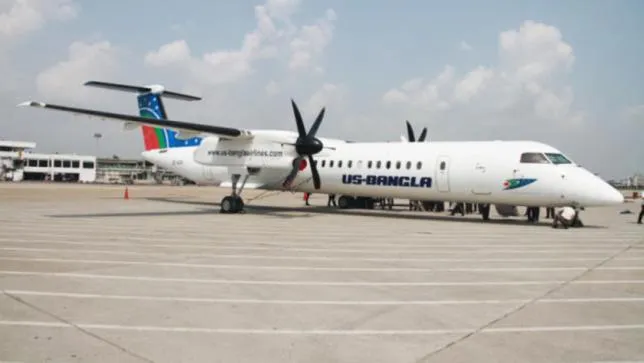
Pilot in Kathmandu crash was 'emotionally disturbed'
Jan 28, 2019

The pilot involved in the recent crash in Kathmandu was reported to be emotionally disturbed prior to the incident. Investigations revealed that he exhibited signs of psychological distress, which may have impacted his decision-making and performance during the flight. Colleagues noted changes in his behavior leading up to the accident, raising concerns about his mental well-being. Authorities are now examining the implications of mental health on aviation safety, highlighting the need for comprehensive support systems for pilots. This tragic event has sparked discussions about the importance of monitoring mental health in high-stress professions, particularly in the aviation industry.
The tragic crash of a pilot in Kathmandu has raised significant concerns regarding mental health in aviation. Reports suggest that the pilot was 'emotionally disturbed' prior to the incident. This revelation has ignited discussions among industry experts about the importance of mental health assessments for pilots. In light of this event, it is crucial to explore the implications of mental health on aviation safety and the measures necessary to address these challenges.
The Connection Between Emotional Disturbance and Aviation Safety
Emotional disturbances can severely impact a pilot's decision-making abilities and overall performance. The aviation industry has long recognized the importance of mental fitness, but incidents like the Kathmandu crash highlight the need for more stringent mental health evaluations. According to reports, psychological issues can lead to impaired judgment, decreased reaction times, and increased likelihood of error during critical flight operations.
| Impact of Emotional Disturbance | Potential Consequences |
|---|---|
| Impaired Judgment | Poor decision-making during critical phases of flight |
| Decreased Reaction Times | Inability to respond promptly to emergencies |
| Increased Likelihood of Error | Higher chances of accidents or incidents |
Assessing Pilot Mental Health
Given the evidence linking mental health to aviation safety, it is essential to implement comprehensive mental health assessments for pilots. Current protocols often focus on physical health, but the emotional and psychological well-being of pilots must be prioritized. Regular mental health screenings can help identify issues before they escalate into more serious problems.
Moreover, aviation authorities and airlines need to foster an environment where pilots feel comfortable discussing their mental health without fear of stigma or repercussions. This can be achieved through:
- Training and Education: Providing training for pilots and crew on recognizing signs of emotional distress in themselves and others.
- Support Systems: Establishing support systems, such as counseling services and peer support groups.
- Open Communication: Encouraging open discussions around mental health within the aviation community.
The Role of Airlines in Promoting Mental Wellness
Airlines play a crucial role in promoting mental wellness among their pilots. By creating supportive work environments and implementing mental health initiatives, airlines can help mitigate the risks associated with emotional disturbances. Some effective strategies include:
| Strategies for Airlines | Description |
|---|---|
| Mental Health Days | Offering pilots designated mental health days to recharge and manage stress. |
| Access to Counseling | Providing easy access to mental health professionals for pilots. |
| Work-Life Balance | Encouraging a healthy work-life balance to reduce burnout. |
Conclusion
The crash involving a pilot in Kathmandu serves as a stark reminder of the critical importance of mental health in aviation. It highlights the need for a proactive approach to mental health assessments and support for pilots. By implementing comprehensive mental health strategies, the aviation industry can enhance safety and ensure the well-being of both pilots and passengers.
As discussions continue around the implications of emotional disturbance in aviation, it is imperative for industry stakeholders to take action. Prioritizing mental wellness not only protects lives but also promotes a healthier and more resilient aviation community.
In summary, the tragic events surrounding the Kathmandu crash underline the necessity of addressing mental health in aviation. With the right support systems and assessments in place, the industry can work towards preventing such incidents in the future.
Related Articles

Explore Thailand: The Best Islands to Visit for Paradise, Adventure, and Relaxation

The Ultimate Guide to the Best Islands in Thailand for Your Next Getaway

Do babies need passports? How to get a passport for a newborn

How to get a U.S. passport fast: here’s how to expedite the process

What is Mobile Passport Control: 5 reasons why you should use it

SENTRI vs. Global Entry: A detailed guide

Do you need a passport to go to the Bahamas? Let’s find out

Do you need a passport to go to Mexico? A detailed guide

Do you need a passport to go to Canada? We got the answer

Do You Need a Passport for a Cruise: An Essential Travel Guide

Booster Seat Requirements: All the Rules to Follow in Your Rental Car

What Are the World’s Most Powerful Passports, and How Does Yours Rank?

How to Take a Passport Photo at Home: A Helpful Guide

You've got to have heart! Southwest's new livery

Your opinion: Should water be free on low cost carriers?

Young women bolder than guys as solo travellers
